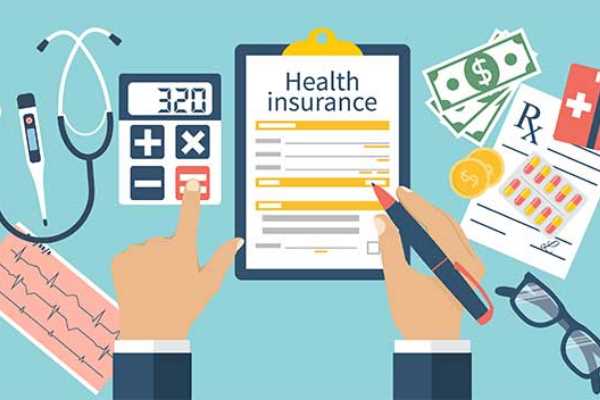Is it true that an employee is not required to pay social insurance contributions, unemployment insurance premiums, premiums of occupational accident and occupational disease but still receives benefits from health insurance?
- What is health insurance?
- Cases not eligible for health insurance benefits
- Is it true that an employee is not required to pay social insurance contributions, unemployment insurance premiums, premiums of occupational accident and occupational disease but still receives benefits from health insurance?
What is health insurance?
Pursuant to Clause 1 Article 2 of the Law on Health Insurance 2008 of Vietnam (amended by Clause 1 Article 1 of the Amendments to the Law on Health Insurance 2014 of Vietnam), it can be understood as follows: Health insurance is a form of compulsory insurance applied to target groups prescribed in this Law for healthcare and non-profit purposes, the implementation of which is organized by the State.
Cases not eligible for health insurance benefits
Pursuant to Clause 1 Article 23 of the Law on Health Insurance 2008 of Vietnam stipulating cases not eligible for health insurance benefits as follows:
- Cases specified in Clause 1 of Article 21 in which costs have been paid by the state budget.
- Convalescence at sanatoria or convalescence establishments.
- Medical check-up.
- Prenatal tests and diagnosis for non-treatment purposes.
- Use of obstetric supportive techniques, family planning services or abortion services, except for cases of discontinuation of pregnancy due to fetal or maternal diseases.
- Use of aesthetic services.
- Treatment of squint, myopia and eye refraction defect except for the children under age 6. (amended by Clause 16 Article 1 of the Amendments to the Law on Health Insurance 2014 of Vietnam)
- Use of prostheses including artificial limbs, eyes, teeth, glasses, hearing aids or movement aids in medical examination, treatment and function rehabilitation.
- Medical examination, treatment and functional rehabilitation in case of disasters. (amended by Clause 16 Article 1 of the Amendments to the Law on Health Insurance 2014 of Vietnam)
- Medical examination and treatment in case of suicide or self-inflicted injuries.
- Medical examination and treatment for addiction to drugs, alcohol or other habit-forming substances.
- Medical examination and treatment of physical or mental injuries caused by the injured’s law-breaking acts.
- Medical assessment, forensic examination, forensic mental examination.
- Participation in clinical trials or scientific research.

Health Insurance In Vietnam
Is it true that an employee is not required to pay social insurance contributions, unemployment insurance premiums, premiums of occupational accident and occupational disease but still receives benefits from health insurance?
Pursuant to Article 42 of the Law on Health Insurance 2008 of Vietnam stipulating as follows:
“Article 42. Management of participants
1. An employee who signs at least 2 labor contracts with different employers shall pay social insurance contributions and unemployment insurance premiums according to the first labor contract, pay health insurance premiums according to the labor contract with highest salary and pay premiums of occupational accident and occupational disease according to each labor contract.
2. An employee who works under a labor contract (excluding employees working under labor contracts without definite prescribed in the Government's Decree No. 68/2000/ND-CP dated November 17, 2000 on labor contracts for certain jobs in administrative authorities and public service providers) in an administrative authority or a public service provider shall pay insurance contributions or premiums according to his/her salary specified in his/her labor contract.
3. An employer that is allowed to suspend the payment to the retirement and death benefit fund shall still make payment to the sickness and maternity fund, occupational accident and occupational disease fund, health insurance fund and unemployment insurance fund. When the period of suspension from payment of insurance contributions and premiums has expired, the employer shall continue paying insurance contributions and premiums according to the registered payment method and paying premiums for period of suspension from payment to the retirement and death benefit fund. The insurance contributions and premiums in the period of suspension shall not be subject to the late payment interest. Within the period of suspension, if an employee take leave, moves or wishes to receive social insurance benefits, his/her employer shall pay sufficient insurance contributions and premiums and late payment interest (if any) for this employee to confirm his/her social insurance book.
4. An employee who does not work or receive salary for at least 14 working days in a month is not required to pay social insurance contributions in this month. This period shall not be included in the payment period of social insurance contributions.
5. An employee who takes leave due to sickness for at least 14 working days in a month in accordance with regulations of law on social insurance is not required to pay insurance contributions and premiums but still receives benefits from health insurance.
[…]”
According to the above regulations, the period of 14 working days that an employee doesn’t pay insurance is determined basing on month. That means in August, if that employee had to take leave and enjoy the sickness benefits in 14 working days or more, he/she is not required to pay social insurance contributions, unemployment insurance premiums, premiums of occupational accident and occupational disease. Also in the above regulation clearly states that, if you are not required to pay social insurance contributions, unemployment insurance premiums, premiums of occupational accident and occupational disease, you will still enjoy the health insurance benefits as usual.
Thư Viện Pháp Luật